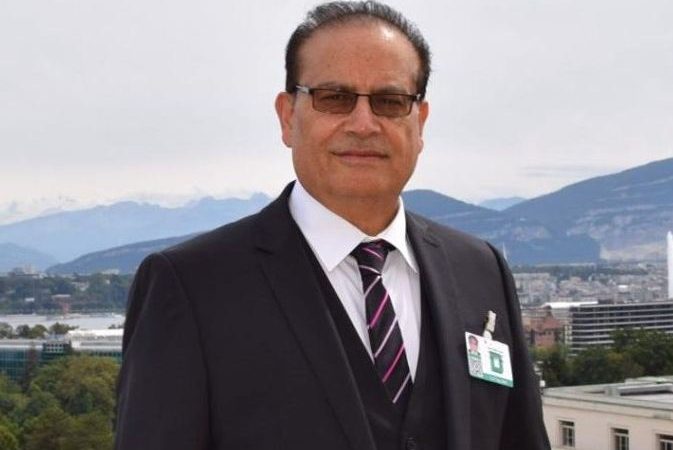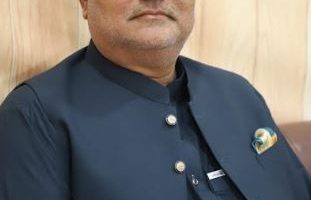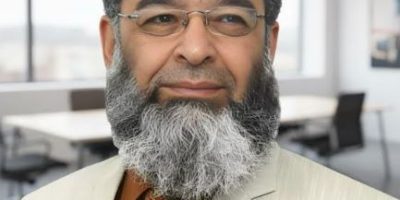Traoré: The Unyielding Voice of Africa’s Awakening

By Qamar Bashir
Burkina Faso, a landlocked nation in West Africa with a population of over 22 million, has long been a battleground for competing global interests. Rich in gold, copper, and other minerals, yet plagued by poverty and conflict, the country has struggled to assert control over its wealth. In September 2022, a bold new leader emerged—Ibrahim Traoré, a 34-year-old army captain—who seized power in a military coup, vowing to reclaim Burkina Faso’s sovereignty from foreign exploitation. Traoré has since become a symbol of resistance, not just for Burkina Faso, but for an entire continent, as he challenges the Western narrative that has long defined Africa’s story.
In a world long manipulated by Western narratives, where the lens of global media has distorted the true image of Africa, a single voice has risen to shatter the illusion—a voice that echoes the suppressed struggles and stolen dreams of an entire continent. That voice belongs to Ibrahim Traoré, the young, fearless leader of Burkina Faso, who is shaking the foundations of global power and calling out the hypocrisy of the so-called saviors of humanity.
It was a fine day when I stumbled upon Traoré’s powerful speech—an unfiltered exposure of the Western media’s stealthy agenda in shaping global perceptions. He spoke not as a polished politician but as a son of Africa, a man who had seen his homeland reduced to a caricature of poverty and despair. Traoré laid bare the ugly truth: for decades, Africa has been portrayed through a narrow, oppressive lens—of starving children with swollen bellies, of violence, corruption, and hopelessness—while the West parades as a benevolent savior, offering aid and charity to uplift the helpless.
But the real story, as Traoré thundered, is one of theft—of minerals, of wealth, of sovereignty. In the name of development, Western corporations and governments have plundered Africa’s rich resources—cobalt, copper, gold, oil—filling their coffers while leaving Africans in abject poverty. He exposed the billion-dollar profits that flow from African soil to Western boardrooms, while African streets remain lined with hunger and neglect. Traoré’s words were not mere rhetoric—they were a battle cry, a call for Africans to reclaim their dignity, to rise as equal partners on the world stage.
His message resonated far beyond Burkina Faso. Traoré has become a symbol of Africa’s collective awakening—a young, enterprising leader who uses every available platform—be it speeches, videos, or direct outreach to global media elites—to amplify the voice of a continent no longer willing to bow to the West. He has called out France, the UK, and the USA for their centuries of exploitation, exposing, in a stunning episode, how the French ambassador to Burkina Faso was caught fleeing with billions in cash, gold, weapons, and detailed maps of the nation’s mineral wealth. The deals struck with Burkina Faso, it turns out, were a sham—showing the government a fraction of the true value, while the real riches were siphoned away in secret.
Traoré also lifted the veil on how foreign journalists, stationed in Africa under the guise of reporting, were in fact spies—embedded agents gathering intelligence for Western corporations and military establishments, ensuring the cycle of plunder and poverty continued uninterrupted. The story of Africa, as dictated by the West, is a lie—a narrative designed to keep the continent weak, dependent, and submissive.
But Traoré is not a man to be silenced. His vision is radical, yet profoundly logical: Africa must control its own resources, build its own industries, and develop its own human capital. He has rejected token gestures of aid—famously turning down an offer from the Saudi king to build 200 mosques in Burkina Faso, saying, “If Gazans can pray without mosques under bombardment, we too can pray without them. What we need are schools, hospitals, laboratories, and technology to feed and empower our people.” His refusal was not an act of defiance against faith, but a statement of priorities: Africa needs tools, not symbols.
Traoré’s stance has made him a target. Western powers are scrambling to understand the implications of his words—how this single voice, carried on the wind across the continent, is stirring a consciousness long suppressed. His message is simple yet revolutionary: Africa will no longer be a playground for foreign interests. It will rise as a dignified, sovereign continent, guided by its own aspirations and led by its own people.
Traoré understands that Africa’s wealth is meaningless without the capacity to harness it. He has called on the African diaspora—doctors, engineers, scientists, entrepreneurs, who have thrived abroad—to return home, to lend their expertise and build the foundations of an independent Africa. He knows that extracting resources requires technology, capital, and skilled human resources—assets that have long been controlled by Western corporations. But he is determined to forge new partnerships—with China, Russia, the Muslim world—based on mutual respect and shared progress, not exploitation.
Burkina Faso, under Traoré’s leadership, is no longer content to be a passive supplier of raw materials. The vision is clear: build the refineries, the factories, the universities, the research centers. Educate the youth, empower the women, and create an economy that serves the people, not foreign shareholders. Traoré’s fight is not just for Burkina Faso—it is for Africa. It is for every nation that has been told its place is at the bottom of the global ladder, for every community robbed of its future, for every family left hungry while their soil enriches others.
In Traoré’s eyes, the future of Africa is not one of handouts and dependency. It is a future of self-reliance, dignity, and justice. He is a man who refuses to be a pawn in the global game—a man who stands tall against the tides of history, declaring that Africa’s time has come, and it will no longer be silenced.
The world may not yet fully grasp the power of Ibrahim Traoré’s vision, but one thing is certain: a storm is brewing in Africa, and it carries the name of a young captain from Burkina Faso who dares to dream of a continent free from chains.
By Qamar Bashir
Press Secretary to the President (Rtd)
Former Press Minister at the Embassy of Pakistan to France
Former MD, SRBC
Macomb, Michigan, USA
Related News

Bombing on Bowed Bodies: An intelligence failure?
By Prof. Dr. Arshad Munir Those who prostrated before God are dear to God. TheyRead More

Kites of Hope Amid Shadows of Sorrow
By Muhammad Mohsin Iqbal After nearly a quarter of a century, Basant has returned toRead More


Comments are Closed